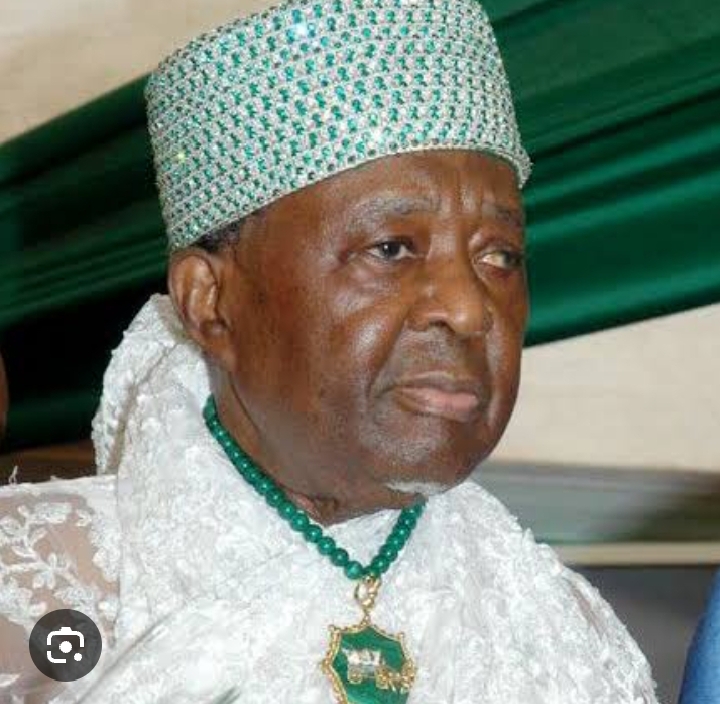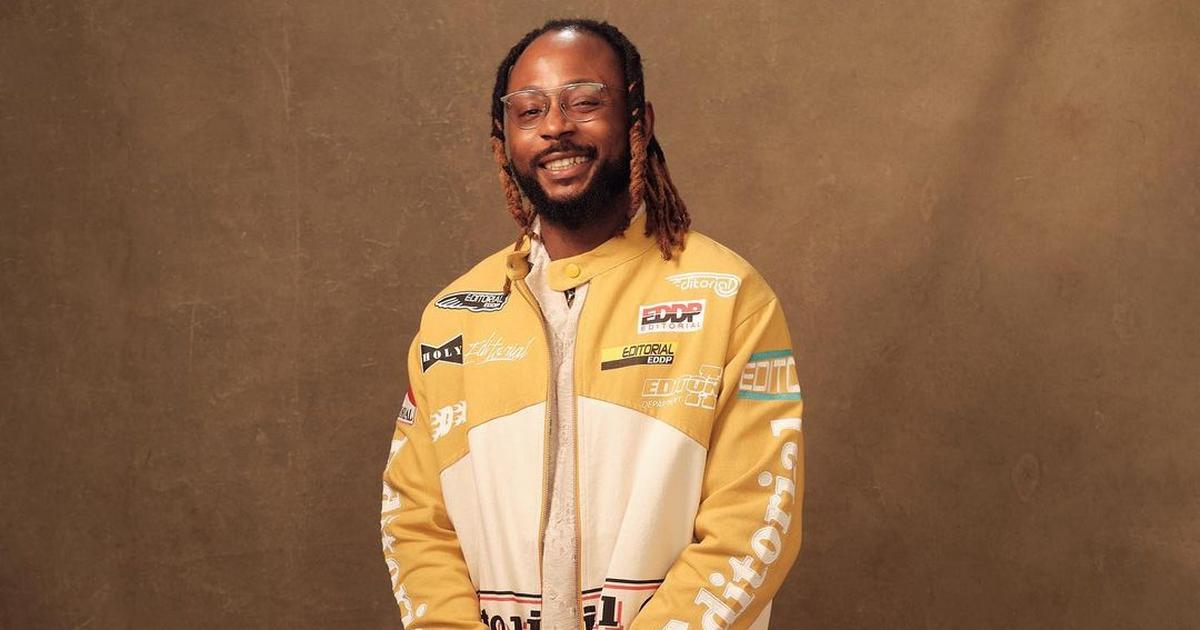So he went back and picked up a film degree at Colorado Film School, where he made a film every week for two years and got his “bad habits out.” He returned to Nigeria for NYSC and served at a production company in Opebi, a menial job that demanded so much but gave so little. After he had made over 100 crappy low-budget movies, primarily for DSTV, he decided he wanted more for his movie career.
In 2016, he debuted Ojúkòkòrò, “a quick 11-location movie” with Zainab Balogun, Somkele Iyamah-Idhalama, and Wale Ojo as his main cast. He had the money for an MBA that he wouldn’t do and the actors needed any job that was not awash with boring archetypal characters.
Since then, he has made Knockout Blessing, Dwindle, Ilé Owó, a promo video for Afrobeats rascals, Shallipopi and Odumodublvck, and this year’s Àjọṣepọ̀.
“I always wanted to be a writer. But then I figured out film was an easier way to get to people,” he told Pulse Nigeria in March. “People don’t read as much. How many people do you know that read? As a whole, books have been going down for years. I’m trying to make money.”
Olaitan has been part of a young crop of filmmakers — alongside Kayode Kasum, (a frequent collaborator of his), Bunmi Ajakaiye, C.J. Obasi, etc — who have exhibited their works at international film festivals across the world, taken them to the cinemas and tried to attain critical acclaim. They also have the big streamers to put the work in front of more international and exposed eyeballs.
“When I made Ojúkòkòrò, I knew that it was going to come out in cinemas. But now most of us are pretty 100% sure that movies are going to be seen by Nigerians all over the world and if you do well enough, it can cross over,” he said.
“So I think that there’s a different audience and it has increased the stakes. The professionalism has increased. It’s just changing the industry. People are getting their act together. People are without a doubt, becoming more professional because people are now accessing funds from outside the country to make films. We have a movie (Obasi’s Mami Wata) that got nominated for an Independent Spirit Award. So they have to do things the right way.”
The future of Nollywood, according to Dare Olaitan
But even as Nollywood enters its years of plenty, there is a problem inhibiting it from competing as it should – budget. Regardless of this, the successes of the industry in the past few years make Olaitan enthusiastic when he thinks of the future of Nollywood.
“Considering what we are working with — like the level of training we have, the level of budgets, the amount of pressure and time — that the things we’re making are actually being consumed is a testament to the resilience of our industry and where we’ll go,” he said.
“The biggest Nollywood movie I think cost $1 million and everyone is like, ‘Wow!’ I worked on Transcendence as an AP (Associate Producer), and $1 million was the food budget per week. But we are making movies that are being noticed. We are appearing in Deadline nowadays. So I think within another 20 years, the industry will be in a different place than where it is right now.”
With the arrival of heavily funded animations Iwájú and Kizazi Moto on the continent, it might seem like Nollywood is primed for feature-length indigenous animated projects. But Olaitan says the industry must first get past this budget problem.
“To make an animated movie, a second of animation costs $2,000 for like a Hollywood animation. They cost more than live action so we can’t do it. It’s a budget constraint issue. It’s a talent issue. We are not there. We are in a nascent industry that somehow is making things that can compete,” he said.
But this is not to say budget is the only problem that has plagued the industry because there are many other issues. Nollywood’s writing, in particular, has for years been criticised for promoting notoriously outdated tropes — about women, class, and sexuality — long overdue for retirement. For Olaitan, this is as much an indictment of Nigerian society as it is of the industry.
“I think it’s just a matter of the literacy of the nation. We are selling a product. So you have to sell it to who’s going to buy it. That’s the thing that I think that is. It’s very sad. But you have to accept that like, no matter what is going on, no matter the art, at the end of the day, it is still a business,” he said.
“So if I make the most artistic movie that gets critically acclaimed, 10/10 by everybody and I do make money, the guy who makes like, something that we all think is trash but made more money, will make more movies. So we’re all trying to, no matter what, make movies that will be seen. And it has been proven time and time again, the kinds of movies that get watched. Right now, we’ve reached the point that people are trying to do ₦1 billion. If you’re trying to do ₦1 billion, there are concessions you have to make.”
Nollywood’s storytelling problem
But at the core of this storytelling problem, Olaitan, who has had his boots on the ground in both Nollywood and Hollywood, also argues is the budget.
“Writing is notoriously hard. My best storytelling movie I think is Ojúkòkòrò and I wrote that for two years because I had no expectations. Now, when you’re making a Nollywood movie, most people don’t have the time to write a movie for more than two months and it sadly shows. This is why I talk about budgets,” he said.
“Most Hollywood movies would have a development budget of maybe $2 million for the writing and they will write it for eight years. So when you see something written for eight years versus something written for two months, you see the difference. I think the pressures of the market dictate the product that is created at the time.”
Over the years, Olaitan has been able to tread that line of making films in Nigeria while also prioritising redeeming themes that poke holes at society. His formula is presenting them in “a nice comfortable package.”
This is what he did with his latest work, Àjọṣepọ̀, which he co-produced with Feyifunmi Oginni. Kasum directed it. The movie follows a couple as they prepare to tie the knot. But after an adulterous incident is discovered, buried secrets begin to resurface, threatening the wedding itself.
“I wanted to make a movie that was about a Nigerian thing, because I realised that Nigerians like heartfelt stories, like things that they can relate to in their lives. That is why weddings and all those things work,” he said.
“I wanted to make a wedding film that deals with real things most Nigerian families deal with. And I think that a thing that is not discussed is how trauma is passed down from generation to generation because we are a very trauma-filled people. I wanted to dramatise that and just put it in a nice comfortable package,” he added.
Àjọṣepọ̀, in Nigerian cinemas starting April 10, 2024, features a cast that includes Mike Afolarin, Tomike Adeoye, Timini Egbuson, Mercy Aigbe, Yemo Solade and Bisola Aiyeola.
What is next for Dare Olaitan? He won’t say exactly what he is working on. But he offered this.
“Since I started making movies, I always take a year off to think and I guess, decide what I’m making again. So in the time off, I’ve come up with a couple of ideas and now we’ll see which one I’m going to make.”






